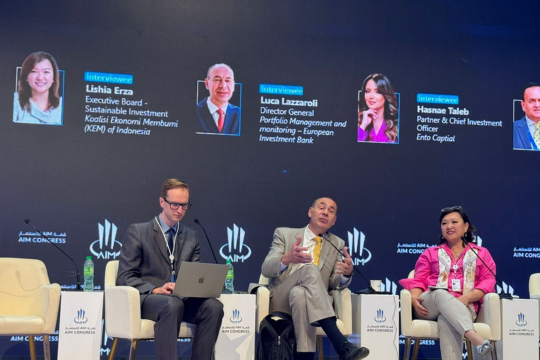World Tourism Day: Collaboration for a Restorative Economy in Sustainable Tourism with Ecotourism Bali (ETB)
Bali, [9/27] - In celebration of World Tourism Day 2024, Koalisi Ekonomi Membumi (KEM) collaborated with Ecotourism Bali (ETB) to host a panel discussion on the theme "Restorative Economy for Climate Change through Sustainable Business Solutions." The event highlighted the urgency of adopting sustainable solutions within Indonesia's tourism sector, particularly in Bali, which is highly vulnerable to the impacts of climate change. Three speakers, representing Konstelasi Accelerator, SCOPI (Sustainable Coffee Platform of Indonesia), and Palapa, shared their perspectives. As one of the most popular tourist destinations globally, Bali faces significant challenges that threaten the sustainability of its economy due to increasingly unpredictable climate changes.
The panel discussion brought together various stakeholders, including government representatives, hospitality and tourism industry professionals, environmental experts, and local communities. Irma Chantily, Chairperson of Konstelasi Accelerator, emphasized the importance of sustainable innovation in ensuring the continued viability of the tourism sector amidst global climate challenges.
During the session on Circular Economy Innovation, the discussion focused on the need to implement a circular economy as one of the solutions to reduce the tourism sector's carbon footprint. One example of the innovations presented was the processing of nutmeg waste into alcoholic beverages by the brand Palapa, demonstrating how waste from the agricultural sector can be turned into high-value-added products. Additionally, the discussion identified various environmental challenges faced by the tourism sector, such as waste management, energy efficiency, and the implementation of environmentally friendly practices in hotels, restaurants, and tourist destinations.
A key objective of the event was to encourage collaboration among stakeholders in the tourism, technology, and environmental sectors. Through this collaboration, it is hoped that the solutions developed can be adapted and implemented by industry players to create a more resilient and sustainable tourism sector.




